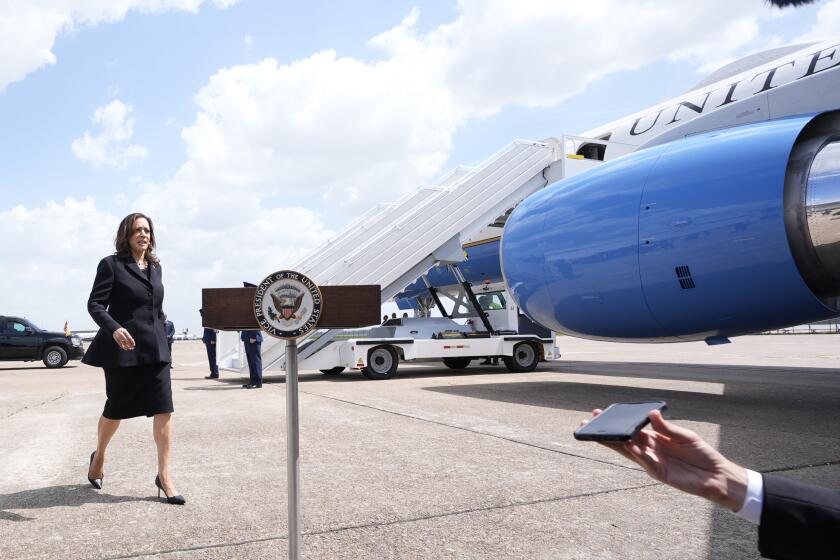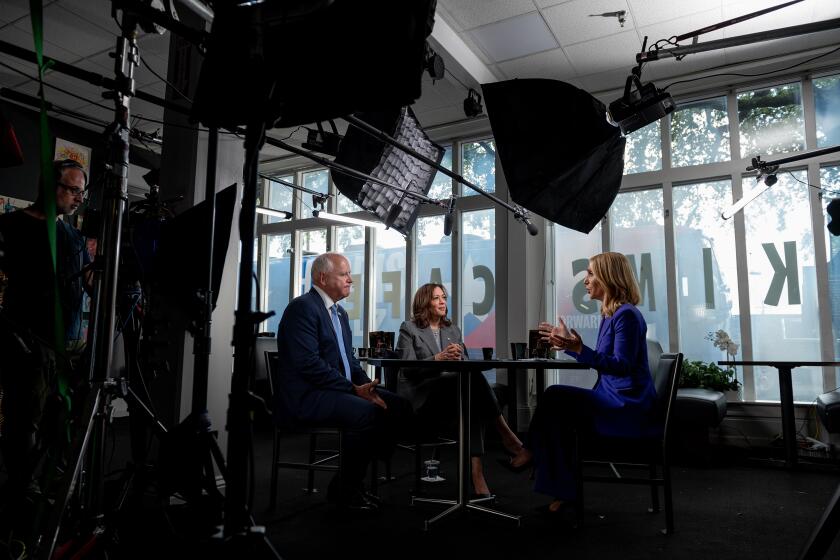Obama’s transparency record appears cloudy
One casualty of President Obama’s first year in office: the notion that he would transform a political system mired in gridlock and secrecy, opening a window to the legislative process.
That hasn’t happened. Instead of healthcare negotiations broadcast on C-SPAN, as candidate Obama famously promised, the fate of the landmark bill is being hashed out in private on Capitol Hill. And recent polls indicate that the public has lowered its expectations about the prospect of a more open government.
In his State of the Union speech Wednesday, Obama signaled he isn’t giving up on the idea that he can usher in greater accountability and transparency in Washington. But realities of governing have caused him to trim his ambitions.
In recent days, Obama made a surprising admission: the healthcare negotiations have fallen short of his standard for openness. He told ABC’s Diane Sawyer that healthcare was an “ugly process and it looks like there are a bunch of backroom deals.”
He said he wanted to “move forward in a way that recaptures that sense of opening things up more.”
Up to that point, the administration’s position had been that the public was sufficiently informed about healthcare, even though negotiations with doctors, drug manufacturers and other interest groups took place in private, often at the White House.
“The president feels very comfortable with the amount of transparency that we’ve had,” White House Press Secretary Robert Gibbs said in July.
It isn’t clear, though, what Obama plans to do to open things up.
The question came up again Friday, when Obama spoke to the Republican House caucus in Baltimore.
Rep. Jason Chaffetz (R-Utah) told the president that because of the failure to broadcast the healthcare talks, “I was disappointed, and I think a lot of Americans were disappointed.”
Obama replied that C-SPAN had aired the “majority” of the proceedings through its coverage of committee hearings. The president conceded, though, that healthcare was a “messy process . . . so on that one, I take responsibility.”
It might have been a promise Obama was unwise to make in the first place. Even advocates for open government say it’s unrealistic to expect all government business to play out publicly.
Ellen Miller, executive director of the Sunlight Foundation, a nonpartisan group that pushes for more openness in government, said: “You can’t have every negotiation, every discussion, be on camera if you expect productive results. The legislative process is one of horse trading and compromises. If you put that all on camera all the time, nothing would get done.”
Obama’s pledge to pry loose government information and share it with the public is showing mixed results on other fronts.
Government watchdog groups credit Obama for releasing names of visitors to the White House complex, including the release Friday of 75,000 records of visits in October.
“What they’re doing is wiring openness as the default position in government,” Miller said. “Hopefully, the genie of openness will never be put back into the bottle again.”
In response to a directive from the White House on Dec. 8, federal agencies are also releasing information they judge to be of great interest to the public, posting it on the website Data.gov. Watchdog groups praise the exercise, but they’ve also found that some of what the government is disclosing is either a repackaging of old information or of marginal value.
According to the Sunlight Foundation, the Commerce Department posted rain and snow accumulation data that were already available online.
Nor is all of the information easy to interpret.
“It would also be nice to have a clearer description of what some of the codes mean in the document. What’s a category code ‘97P 97R 57K 57B?’ ” read a blog post from a Sunlight staff member, referring to a document showing government-funded research and development projects.
Sean Moulton of OMB Watch, an advocacy group devoted to government accountability, said some reports “were so complex and specialized I couldn’t even figure out if they were particularly useful or not.”
Still, by elevating transparency as a national issue, Obama is influencing behavior elsewhere in the capital.
For example, the Senate Democratic leadership responded to criticism about the closed-door meetings on healthcare by posting large amounts of material on the Web -- and with uncharacteristic speed.
Shortly after Majority Leader Harry Reid (D-Nev.) produced the healthcare bill that ultimately went before the Senate, the full 383-page text was up on the leadership’s website.
Janet Hook in the Washington bureau contributed to this report.
More to Read
Get the L.A. Times Politics newsletter
Deeply reported insights into legislation, politics and policy from Sacramento, Washington and beyond. In your inbox three times per week.
You may occasionally receive promotional content from the Los Angeles Times.










